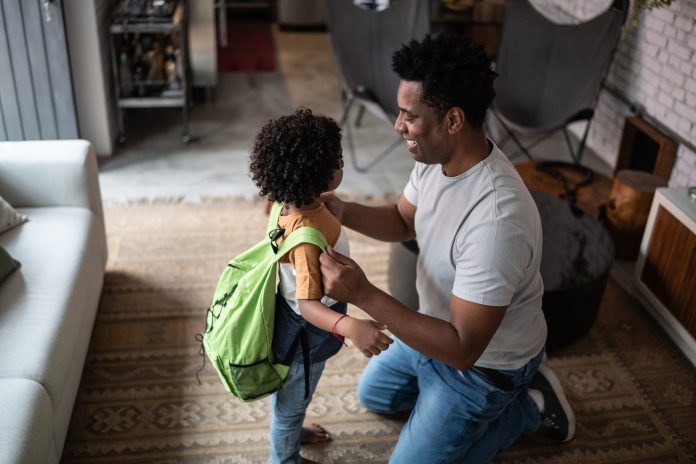Is your child ready for school? This article explores the gap between parent and teacher perceptions of school readiness, offering Montessori-based tips to prepare your child for a smooth transition
Well done on securing your child’s school place! The wait is over, and although you have your place, the countdown to school starts, and some parents often start to wonder whether their child is truly prepared for the upcoming challenges of school life. Louise Livingston, Head of Training at the Maria Montessori Institute and Pedagogical Advisor to its School for 2-16-year-olds on five London sites, discusses what school readiness means and how parents can best support their child in the early years.
What does school readiness really mean?
YouGov research reveals a disparity between teacher and parent perceptions of “school readiness”. In a survey by YouGov, teachers reported that more than half (54%) of children starting reception are not “ready for school”.
In contrast, 89% of parents surveyed said they felt their child was ready, suggesting a vast difference of opinion about what is needed to be “ready for school”.
What teachers look for in school readiness
Of the many teachers surveyed, they expected a few academic skills, such as holding a pen, recognising letters and numbers, and having some familiarity with nursery rhymes.
However, they also identified social skills, confidence and independence, giving examples such as eating, dressing, children being able to verbalise their own needs, and using the toilet independently, playing, sharing, taking turns and following instructions, and being able to concentrate for a short amount of time.
The Montessori approach to school readiness
The Montessori approach to child development, there is an emphasis on preparing adults, be they teachers or parents, to support children in a way that encourages independence, concentration and social skills. From birth onwards, we honour children’s drive to do things for themselves so that they can become self-confident, independent thinkers and problem-solvers.
Some examples of how parents can adopt a Montessori approach with their children include:
- Encourage movement from a young age; for example, you could place toys such as a rattle just out of a baby’s easy reach so they have to move to get it. As your child gets older, avoid using the buggy when they could walk and take them to large spaces where they can move freely and climb and balance.
- Whenever possible, avoid always fitting your child into your schedule – they need time to play in a self-directed way at their own pace, using their own ideas.
- Enable your child to help with household tasks such as hanging out, washing or tidying up: this will support independence and confidence. Show them how to do it and let them try.
- Step back and let children do things by themselves as much as possible – from putting shoes on to cleaning themselves after eating – again, show them how to do it, and then let them try.
- Take time to listen when your child is trying to communicate with you – even from a very young age – and respond even when your child cannot say words for themselves – they will increase their vocabulary from hearing you say things.
Supporting your child’s long-term success
As a parent, actively supporting your child’s development from the start will help them to prepare for School and contribute to their long-term success and happiness, which is what every parent hopes for.
We know that a child is more likely to fulfil their potential when they feel safe and secure, so supporting their social skills and independence from their earliest days, as well as in the months leading up to the start of School, can help to ensure this happens.
The importance of inclusive school environments
We must also remember that schools should adapt to your child’s diverse and unique needs, recognising that every child is different. The classroom should be an open, friendly and fully inclusive school environment for parents and children to support individual development so children leave school fully equipped with the life skills needed for a fulfilling journey through School and beyond.
In Montessori, the teacher or “guide” will closely observe each individual child, giving them just the right level of challenge and will support them holistically by modelling courtesy and asking each child to contribute to the community by caring for each other and the environment.
This piece was written and provided by Louise Livingston, Head of Training at the Maria Montessori Institute.











